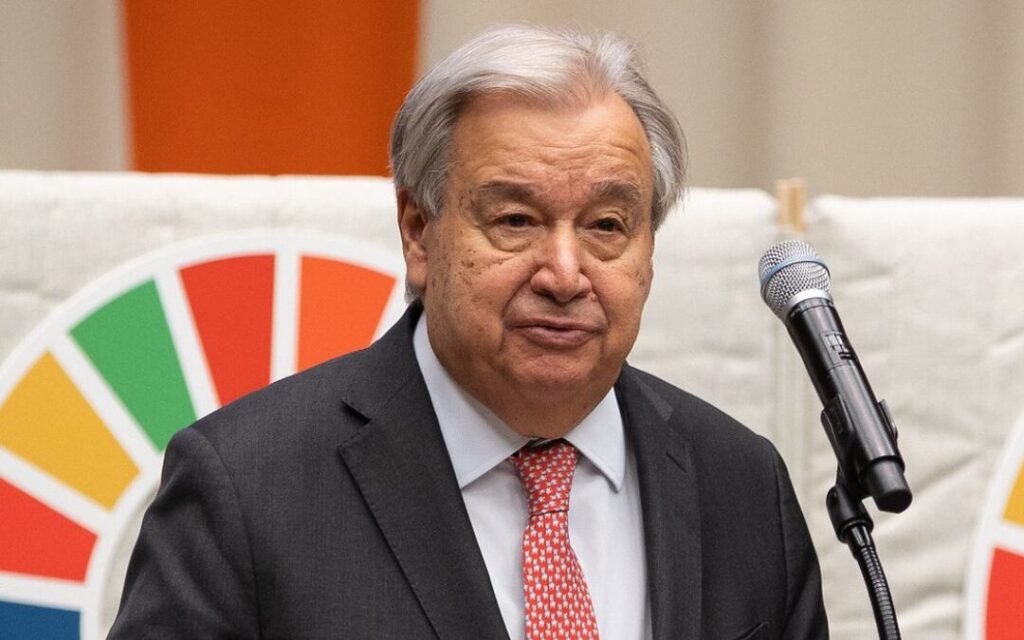A coalition of Nigerian civil society organisations has condemned a proposal contained in the UN80 reform initiative to “sunset” the Joint United Nations Programme on HIV/AIDS (UNAIDS) by the end of 2026.
In a statement issued on Sunday in Abuja, the Coalition of Community Networks and Civil Society Organisations in Nigeria described the move as “ill-timed” and a “betrayal” of millions of people living with and affected by HIV.
On 18 September, in the report “Shifting Paradigms: United to Deliver” under the UN80 Initiative, UN Secretary-General Antonio Guterres formally proposed it.
“We plan to sunset UNAIDS by the end of 2026. This would entail mainstreaming capacity and expertise into relevant entities of the UN development system in 2027,” Mr Guterres said.
UNAIDS was established in 1996 to coordinate global HIV/AIDS efforts and promote community-centred responses. The agency has been instrumental in reducing AIDS-related deaths globally by almost 70 per cent since 2004.
Nigeria, which has the second-largest HIV epidemic in the world with approximately two million people living with the virus, continues to depend on UNAIDS’ leadership.
“Any attempt to dismantle UNAIDS at this point risks reversing hard-won gains, undermining donor confidence (including from key external partners such as PEPFAR and the Global Fund), and sending a chilling message to communities still grappling with the epidemic,” the coalition said.
Concerns over proposal
The coalition noted that the UN’s proposal could reverse gains made in reducing HIV infections and deaths over the past decades.
“The proposal to dismantle UNAIDS is not only ill-advised but dangerously shortsighted and a betrayal of communities living with and affected by HIV,” the statement read.
“AIDS is not over, and the global AIDS response has been upset in recent times that it requires deliberate and concerted efforts to achieve the SDG target of ending AIDS by 2030.”
They stressed that UNAIDS has already been guiding countries toward inclusive and sustainable national responses, prioritising community leadership and domestic funding.
Communities at risk
The groups noted that UNAIDS is the only UN agency with communities and civil society at the “heart of its mandate and governance.”
According to them, removing this structure would silence the voices of women, young people, and key populations most affected by HIV.
The groups warned that UNAIDS has been a lifeline and dismantling it now would cost lives. It also raised a series of questions for the UN Secretary-General and member states.
“Who will assume the leadership role in coordinating the global HIV response? Has the UN abandoned its commitment to end AIDS by 2030? Won’t this proposal undermine the target?” the statement asked.
They said the plan risks creating confusion among governments, donors, and communities, at a time when stability is crucial to meet global health goals.
Call to action
The coalition called on the UN Secretary-General and member states to immediately reject the recommendation to sunset UNAIDS and instead strengthen its mandate.
“We acknowledge the importance of reforming and modernising the UN system. However, we reject any attempt to use the UN80 process as a vehicle to dismantle progress in the HIV response,” they stated.
READ ALSO: World Heart Day: Why undiagnosed hypertension is driving Nigeria’s heart disease crisis- Expert
The statement was signed by six leading Nigerian civil society networks: the Network of People Living with HIV and AIDS in Nigeria (NEPWHAN), Nigeria Key Population Health and Rights Network (NKPHRN), International Community of Women Living with HIV–West Africa (ICW-WA), Association of Women Living with HIV and AIDS in Nigeria (ASWHAN), Association of Positive Youth Living with HIV and AIDS in Nigeria (APYIN), and the Civil Society Network for HIV and AIDS in Nigeria (CiSHAN).
“We stand ready to engage with the UN and Member States to co-create solutions that preserve UNAIDS’ legacy and ensure no one is left behind,” they noted.
Read the full article here


